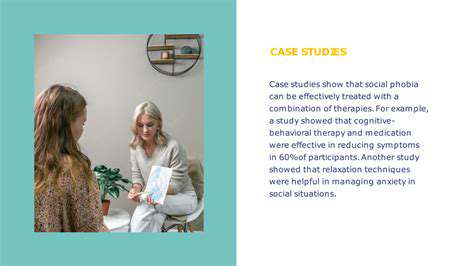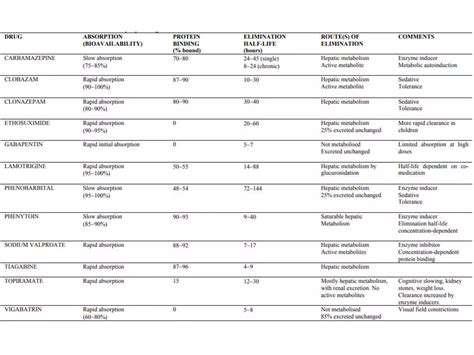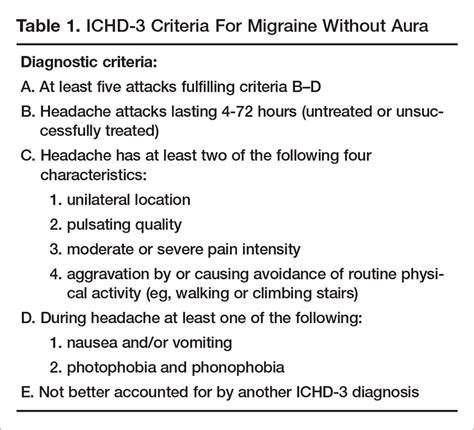Artificial Sweeteners and Migraines: What's the Evidence?
While the precise causes of headaches remain multifaceted and often elusive, recent research has begun to point towards artificial sweeteners as a potential trigger for migraines and other types of headaches. Studies have explored the link between the consumption of artificial sweeteners and headache frequency, although conclusive evidence is still emerging and further research is needed to definitively establish a causal relationship.
The exact mechanisms through which artificial sweeteners might trigger headaches are not yet fully understood. Potential factors may include metabolic responses to these substances, interactions with gut microbiota, or even psychological effects associated with the perceived need for sweetness. It's important to note that these are still hypotheses, and further investigation is required.
Migraines: A More Severe Form of Headache
Migraines, a more severe form of headache, are characterized by throbbing pain, often on one side of the head. They can be accompanied by nausea, vomiting, and extreme sensitivity to light and sound. The intensity and duration of migraine attacks can vary significantly from person to person, and they can significantly impact daily life.
Migraines are a complex neurological disorder, and their triggers are diverse. These can include stress, changes in sleep patterns, dietary factors, environmental factors, hormonal fluctuations, and even certain foods and drinks. Understanding the individual triggers for each person is crucial for managing and preventing migraines.
Dietary Factors and Headache Frequency
Dietary choices play a significant role in overall health, and they can also influence headache frequency. Certain foods and drinks, including processed foods, caffeine, alcohol, and even some types of sugar, can trigger headaches in susceptible individuals. Maintaining a balanced and nutritious diet, avoiding excessive consumption of potential triggers, and paying attention to individual responses is critical for managing headaches related to dietary factors.
The impact of dietary habits on headache frequency is a complex area of study. Further research is needed to fully understand the intricate relationships between specific foods, drinks, and the development of headaches.
The Role of Stress in Headache Development
Stress is a ubiquitous aspect of modern life, and it significantly impacts the body's physiological responses, including the potential for headache development. Chronic stress can lead to muscle tension, hormonal imbalances, and altered neurotransmitter function, all of which can contribute to the onset of headaches and migraines. Managing stress effectively through relaxation techniques, mindfulness practices, and healthy lifestyle choices is crucial for reducing headache frequency.
Stress management techniques, such as meditation, yoga, and deep breathing exercises, can offer a pathway to alleviating the negative impact of stress on headache development. However, the effectiveness of these techniques can vary greatly depending on individual responses and the severity of the stressor.
The Potential Link: Evidence and Anecdotal Reports

The Correlation Conundrum
While anecdotal evidence suggests a potential link between certain lifestyle choices and a reduced risk of specific ailments, it's crucial to understand the limitations of such observations. Simply noting a correlation doesn't automatically equate to causation. A more rigorous approach is needed to establish a definitive relationship and understand the underlying mechanisms at play.
Numerous factors can influence health outcomes, and isolating the effects of a single variable is a complex task. Confounding variables, often unseen or underestimated, can significantly skew results. Therefore, relying solely on observational studies can lead to misleading conclusions about the true nature of the potential link.
Methodological Rigor in Research
To ascertain the validity of any potential link, research must employ robust methodologies. This includes carefully designed controlled experiments, large-scale clinical trials, and rigorous statistical analyses to minimize bias and ensure reliable results. These approaches are essential to establish a solid foundation of evidence before drawing conclusions about the potential relationship.
A focus on replication and consistency across multiple studies is paramount. If a particular finding emerges in several independent studies using different methodologies, it strengthens the evidence for a potential link. Furthermore, the quality of the data collected and the accuracy of the measurements employed play critical roles in the validity of the research.
Exploring Underlying Mechanisms
Simply identifying a correlation is insufficient; understanding the underlying biological mechanisms is critical. Investigating the potential pathways through which a given factor might influence health outcomes can provide valuable insights into the nature of the relationship and potentially lead to the development of effective interventions.
Delving into the molecular and cellular processes involved is necessary to ascertain the root cause of any observed effect. This deeper understanding can shed light on the potential benefits and risks associated with various factors, ultimately informing public health strategies and personalized medicine approaches.
The Importance of Contextual Factors
It's vital to recognize that factors beyond the immediate subject of investigation can significantly impact the observed link. Environmental influences, socioeconomic conditions, and individual genetic predispositions can all play a role in shaping health outcomes and the potential relationship between lifestyle choices and diseases.
Considering the diverse spectrum of individual experiences and circumstances is crucial. A one-size-fits-all approach to interpreting the evidence may not fully capture the complexities of the human condition and the nuanced ways in which factors interact. Recognizing the role of context is paramount for developing a comprehensive understanding of the potential link.
Dietary Considerations and Individual Sensitivities
Artificial Sweeteners and Potential Digestive Issues
Many individuals experience digestive discomfort, such as bloating, gas, and diarrhea, after consuming artificial sweeteners. This sensitivity arises from the body's inability to fully metabolize these compounds, leading to fermentation in the gut. The varying chemical structures of different artificial sweeteners likely contribute to these diverse responses, with some individuals exhibiting greater susceptibility to these effects than others.
Furthermore, the impact on gut bacteria is a complex area of ongoing research. Preliminary studies suggest that certain artificial sweeteners may alter the balance of gut microbiota, potentially disrupting the delicate ecosystem that supports healthy digestion. This could have cascading effects on nutrient absorption and overall well-being.
Individual Reactions to Aspartame and Other Sweeteners
Aspartame, a widely used artificial sweetener, is a prime example of how individual reactions can differ significantly. Some individuals report headaches, dizziness, or other neurological symptoms after consuming aspartame, while others experience no adverse effects. The variability in response may be due to factors like genetics, gut health, or underlying medical conditions.
Similar variations in individual responses are observed with other artificial sweeteners like sucralose and saccharin. Further research is needed to fully understand the complex interplay between individual factors and the effects of these sweeteners.
Dietary Restrictions and Artificial Sweetener Alternatives
Individuals with specific dietary restrictions or sensitivities often need to be mindful of artificial sweeteners. Those following a ketogenic diet, for example, might need to avoid sweeteners that contain carbohydrates or that may trigger unwanted metabolic responses. Alternative sweeteners, such as stevia or monk fruit, are sometimes considered healthier options, but their effects on individual sensitivities still need further investigation.
The Role of Metabolism and Gut Health in Sweetener Sensitivity
An individual's metabolic rate and the health of their gut microbiome can significantly influence how the body processes artificial sweeteners. People with compromised gut health may be more susceptible to digestive issues from these sweeteners due to imbalances in gut bacteria. Factors like pre-existing conditions, medications, and lifestyle choices can all contribute to variations in how the body handles artificial sweeteners.
Cross-Reactivity and Potential Allergic Reactions
While less common than digestive issues, some individuals may experience allergic reactions or cross-reactivity to artificial sweeteners. Similar chemical structures in certain sweeteners could potentially trigger allergic responses in susceptible individuals. This is an area that warrants further investigation and careful consideration for those with known allergies or sensitivities.








